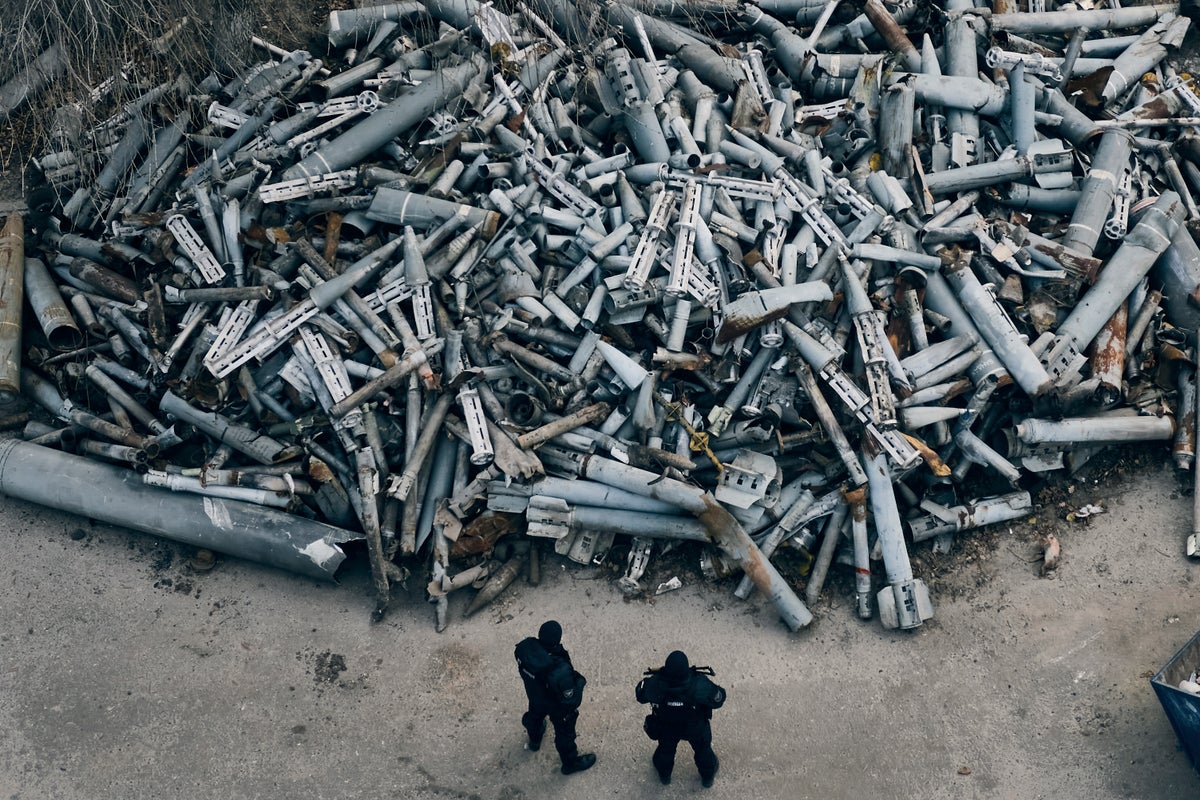
Backers of an international agreement that bans cluster munitions, which harm and kill many more civilians than combatants, are striving to prevent erosion in support for the deal after what one leading human rights group calls an “unconscionable” U.S. decision to ship such weapons to Ukraine for its fight against Russia.
Advocacy groups in the Cluster Munitions Coalition released their latest annual report on Tuesday, ahead of a meeting next week of envoys from the 112 countries that have acceded to or ratified the Convention on Cluster Munitions, which prohibits the explosives and calls for clearing areas where they litter the ground — often during or after conflicts.
A further 12 countries have signed the convention. The United States and Russia are not among them.
Mary Wareham of Human Rights Watch, who has long championed the 15-year-old convention, says the coalition was “extremely concerned” about the U.S. move in July, after an intense debate among U.S. leaders, to transfer unspecified thousands of 155mm artillery-delivered cluster munition rounds to Ukraine.
More than 20 government leaders and officials have criticized that decision, the coalition says.
Hoping to avoid defections from the convention, Wareham says supporters hope signatories will “stay strong — that they do not weaken their position on the treaty as a result of the U.S. decision. And we don’t see that happening yet. But it’s always a danger.”
U.S. officials argue that the munitions — a type of bomb that opens in the air and releases smaller “bomblets” across a wide area — could help Kyiv bolster its offensive and push through Russian front lines.
U.S. leaders have said the transfer involves a version of the munition that has a reduced “dud rate,” meaning fewer of the smaller bomblets fail to explode. The bomblets can take out tanks and equipment, as well as troops, hitting multiple targets at the same time.
But Wareham cited “widespread evidence of civilian harm that (is) caused by these weapons. It was just an unconscionable decision.”
The report says civilians accounted for 95% of cluster munition casualties that were recorded last year, totaling some 1,172 in eight countries: Azerbaijan, Iraq, Laos, Lebanon, Myanmar, Syria, Ukraine, and Yemen. The monitor noted efforts in places like Bulgaria, Peru and Slovakia to destroy their stockpiles of the munitions in 2022 and earlier this year.
Children made up 71% of casualties from explosions of cluster-munition remnants last year, the report said.
It said Russia had “repeatedly” used cluster munitions in Ukraine since President Vladimir Putin ordered Russian forces to invade Ukraine in February last year, while Ukraine had used them “to a lesser extent.”
Washington’s decision “is certainly a setback,” said Wareham, “but it’s not the end of the road for the Convention on Cluster Munitions by far.”







